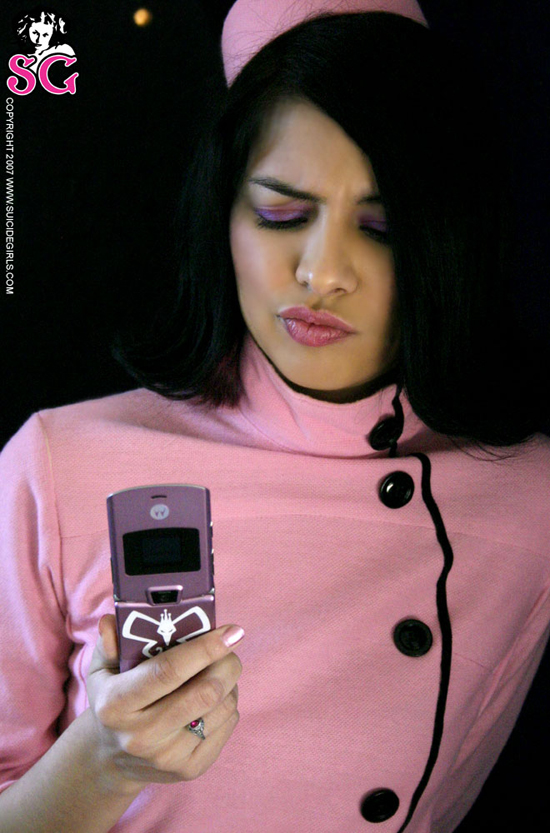
Red, White and Femme: Superheroes11
Posted In Activism,Blog,Comics,Entertainment,Feminism,Geek,Interviews,Movies,Politics
All over the United States, a band of activists has sprung up to take the law into their own gloved hands. “Real life Superheroes” are anywhere from 18 to 62 years old, run the gamut of ethnicities, backgrounds, and gender expressions, and have no real training in fighting crime. However, captured in the Michael Barnett documentary Superheroes, they appear to be part of a movement that’s taking flight.
“The film touches on a zeitgeist-y moment. I think we’re in a very troubled time right now as a society,” Director Barnett tells me over a whisky on the rocks in the dimly lit Santa Monica bar, The Yard. “#OccupyWallStreet is a very power to the people movement. People are fed up and they feel like they don’t have control and they don’t have a voice. And they’re trying to create one. This movement is so on par with that. Though a little more eccentric, it is a protest,” he asserts. “It’s saying ‘I don’t think government is efficient, I don’t think they’re helping us. I don’t think that help is coming from the top down.’”
The perky waitress seems thrilled to interrupt us to refill empty glasses and eavesdrop. The subject of our banter, which careens into after dark street patrolling and hand-made weaponry, is no secret however. In fact, there are a plethora of online forums (such as RealLifeSuperheroes.org) where you and I can engage with these Stan Lee-esque vigilantes, and now, they are under a worldwide spotlight.
Having just returned from a London screening, Barnett, a commercial director who self-funded the film, reluctantly reveals that Superheroes has won multiple awards. Accolades include The Audience Award at Calgary Underground Film Festival and The Grand Jury Award at the Los Angeles United Film Festival, among others. Shot over 15 months, this lauded and still slyly hip documentary shines a well-balanced light on a growing phenomenon, which is spearheaded by people who are self-sacrificing but not martyrs, unassuming but politically-conscious, proactive but not reward seeking.
During the day, RLSH are security guards, teachers, tattoo artists, and stay-at-home dads. But, at night, not unlike Clark Kent’s famous transition into Superman, these young men and women transform into “Dark Guardian,” “Amazonia,” “Mr. Xtreme,” “Zimmer,” and “T.S.A.F” – which stands for The Silenced And Forgotten, and belongs to one of the three female Superheroes represented in the doc.
Their real identities remain under wraps, as do their faces. Wearing sunglasses, baseball caps, head scarves and then, of course, their masks (with the exception of Zimmer, an out gay New Yorker for whom a mask would be too much like crawling back into the closet) none of the crime fighters reveal their true selves. Who they are during bank hours is less important – sometimes even to them – than who they are after dark.
In 1964, a 28-year-old Catherine “Kitty” Genovese was stabbed multiple times in the New York neighborhood of Queens, and left to die. She was brutally assaulted – physically and sexually – and left to bleed out. Another shocking aspect of this violent crime is that a number of neighbors saw or heard the attack in progress – and did nothing. Rather, they chose to turn out their lights and draw down their curtains. Allegedly, one neighbor even turned up his radio to drown out her screams. They simply “didn’t want to get involved,” one witness said. Kitty’s death made international headlines. In our own backyard, our most defeatist trait was killing women. Apathy.
The memory of Genovese’s death, and what is now termed “the bystander effect,” served as a call to arms for Mr. Xtreme, a San Diego superhero and a central figure in the film. He told me, “Genovese is an icon. There’s a lot of Kitty Genovese’s out there, and whether male or female, young or old, I see this happening all the time. It gets us fired up and outraged.” A mentor for youth and would-be Superheroeshe explains, “We want to show young people an alternative to gangs, drugs and the criminal life. Saving a life is the most rewarding part of being a real life superhero. And inspiring people.”
The 35-year-old activist and founder of The Xtreme Justice League, who has a working relationship with police, was recently recognized as a key tool in the capture of the Chula Vista Groper – a man who for five years groped and possibly sexually assaulted women in the area. San Diego Deputy Mayor Rudy Ramirez commended Mr. Xtreme’s help in spreading public awareness. Ramirez said, “The work that Mr. Xtreme has done with posting the fliers certainly contributed to…the capture of the Chula Vista Groper.”
While some dismiss these Superheroes as just outfitted danger seekers, the truth is, many are soldiers for the homeless population in their neighborhood. “Zeta Kits” – Ziplock bags filled with twenty-dollars worth of ‘must-haves’ like deodorant, socks, toilet paper and lip balm, are purchased out of pocket, and passed out by Portland power couple Zetaman and Apocalypse Meow. Irony beware, during Comic-Con, while caped wannabe’s paraded their latest and greatest, winning awards and recognition, the humble RLSH population banded together on the streets in shady intersections, helping the down and out improve their luck.
Filmmaker Barnett and I continued our tete`-a-tete´ well past the first drink, adventuring about the technical and philosophical facets to life as a superhero. Listen in.
Darrah de jour: Let’s start with a technical question. What type of camera did you use?
Michael Barnett: Canon 5D mark II.
Ddj: Do you think that your film has resulted in an upsurge of real life Superheroes?
MB: Definitely. Mr. Xtreme of the Xtreme Justice League in the beginning of our film was an army of one. Now, I think there’s fifteen in his unit in San Diego and they’ve opened a branch in Oregon.
Ddj: Are there any international Superheroes?
MB: There are a ton of international Superheroes. They’re all over.
Ddj: I noticed that a lot of Superheroes in the film had a traumatic upbringing or events that turned them into crime fighters as opposed to being criminals themselves. What are your thoughts on that?
MB: I think it’s an astute observation. I don’t often make generalizations about this community because each person does it for their own reasons and they do it in their own way. But the one thing I really did discover is that by and large – not every one of them – but a large percentage, had some tragedy or trauma happen to them and it’s now manifesting itself as a need to do good for others.
Ddj: One of the Superheroes mentioned that he traded in alcohol for fighting crime. Do you think that a lot of these guys are adrenaline junkies?
MB: Some of them are adrenaline junkies, some of them abide by the law, some of them are fearful in their approach. Some of them really are in it to have a physical encounter with other people.
Ddj: Stan Lee is in the film, and he mentions that none of them have actual superhero powers and that they are putting themselves in danger. What do you think is the greatest danger they are encountering at night on patrols?
MB: These guys patrol in terrible neighborhoods. And America is hurting right now. It’s a tough time for this country. There are very dangerous places all over this country, in every city, and these guys go right to the epicenter of the worst parts of their communities. So it’s not the safest job in the world.
Ddj: Is there any level of in-fighting or politics in the group?
MB: There is. These guys do this because they’re really fed up. They’re fed up with bureaucracy and society status quo and they’re looking for a way to make grassroots change. And in the end there’s no rulebook or manifesto, so they’re trying to make their own rules as they go and they don’t always agree with each other about what those rules should be.
Ddj: A lot of them had handmade weapons. I have a list: a flashlight that doubles as a stun gun, or a 16” baton Amazonia had, a ring of Pharaoh’s fire, bear mace and a sonic grenade. Which weapon was your favorite?
MB: My favorite weapon was Master Legend’s Iron Fist. It can do incredible amounts of damage. It could be a cautionary tale and I think it will be in the near future with one of them getting hurt in a situation.
Ddj: Dark Guardian had a very protective costume. Who do you think had the most appropriate costume for crime fighting?
MB: Master Legend had a costume like a tank, a bullet proof vest, helmet, boots.
Ddj: The animation in the film made you feel like you were watching a comic book. Who did the animation?
MB: We wanted every character to have their own very distinct look. Mr. Xtreme felt very indie comic, very Ghost World. So we hired Jeremy Arambulo. New York Initiative felt very dark and sharp, so we got the well known Rev. Dave Johnson to do that. Master Legend – the art there was so beautiful. That was Andy Suriano. Captain Sticky was very retro. So we went with an old school comic book artist, Richard Pose. They drew the panels and then we handed them to Syd Garon who brought it all to life. I think fanboys will specifically respond to this film.
Ddj: I really appreciated the fact that there were multiple ethnicities reflected as well as women who are RLSH. You introduced Stan Lee talking about a comic book where a female protagonist was running in heels and he thought that her legs looked good in heels, but that wedgies would be more realistic. Was there any subliminal feminism or commentary in why you entered with that?
MB: I just thought it was very funny. Women are drawn in comics so specifically. I had fantasized as a kid about so many women in comics. Rogue from X-Men. Stan’s 90 years old and I thought it was great that he’s still so aware. I thought it was perceptive and nostalgic. He knows his audience.
Ddj: Mr. Xtreme’s family wasn’t extremely supportive of his life choice to be a RLSH. If you were a parent, how would you feel about your child being one?
MB: It would be a mixed bag. I would do everything I could to get them trained properly.
Ddj: The New York Initiative used “baiting” as a tactic during night patrols. What are your thoughts on having a flamboyant, gay character like Zimmer played to trap a homophobe? Do you think it’s ethical?
MB: It’s hard to be present for crime. The police deter crime and solve crime after it happens. Very rarely are they there for crime. You have a team of very young, ambitious, intelligent, motivated RLSH in the NYI and they don’t want to sit around and wait for crime. They want to root out criminality in a courageous way, that’s rarely been done. It was super unsafe and terrifying to shoot. They’re risking their lives.
Ddj: If you could have any superpower what would it be?
MB: The power to stop time.
Superheroesthe movie is playing on HBO and in select theatres nationwide. It’s also available on DVD. For more info visit: www.SuperheroesTheMovie.com
Post-feminist sex and sensuality expert Darrah de jour is a freelance journalist who lives in LA with her dog Oscar Wilde. Her writing has appeared in Marie Claire, Esquire and W. In her Red, White and Femme: Strapped With A Brain – And A Vagina columns for SuicideGirls, Darrah will be taking a fresh look at females in America. Hear her being interviewed about female sexuality on the WingGirlMethod.com, visit her blog at Darrahdejour.com/srblog, and find her on Facebook.









